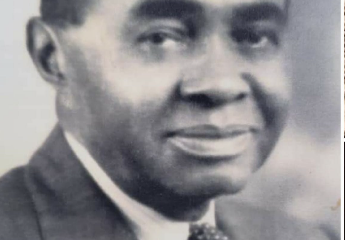Featured
African Americans and the Vote

The African American vote encapsulates the dynamism that is American politics. Blood was shed and lives were lost for African Americans to secure the right to vote. Even today, guaranteed access to the ballot is more a myth.
Prior to the Civil War a handful of free blacks in northern states exercised their right to vote but they were too few in number to make a difference in anything but the smallest of local elections. Then, in the immediate aftermath of the Civil War, southern states enacted a variety of Black Codes, precursors to post-Reconstruction Jim Crow. These effectively codified all manner of discrimination against newly freed slaves. In response to this, Republicans in Congress passed two of the three Civil War Amendments, the 14th amendment of 1868 and the 15th amendment of 1870. The 14th provided citizenship guarantees (thus overturning the notorious Dred Scott decision) and the 15th provided voting rights for black men.
For a time the 15th led to real change in Southern politics. By the dozens, black men won seats in state legislatures and even a few went to Congress. In fact, the first black elected to the U.S. Senate, Hiram K. Revels, came from the closed society of Mississippi. This political renaissance had an unfortunately short life. Northerners preferred national unity over the needed occupation required to guarantee the political rights of black citizens. So, once Union troops withdrew from the South, unreconstructed Southern Democrats resumed their racial tyranny.
Under their thumb, southern blacks were absent from the political process until mid-1960s. Northern blacks, on the other hand, exercised the vote, although the first black from a non-Southern state was not elected to Congress until Oscar De Priest from Southside Chicago served from 1929-1935. De Priest and most other northern blacks were Republicans in homage to its history as the Party of Lincoln.
Truthfully, neither major party paid much more than lip service to the black vote, so any political power blacks had in the North was strictly at the ward level.
A handful of black leaders, most notably Booker T. Washington, had rarefied access to Theodore Roosevelt’s White House, but progress in this era was more illusory than practical. There was considerable backsliding under Woodrow Wilson’s administration. Wilson was an academic visionary, but also a racist and he saw to it that the federal government tightened protocols on black employment within the federal government.
By the time of Franklin Roosevelt’s 1932 election, absent the brief southern political nirvana during Reconstruction, the black American political experience can only be characterized as neglected and oppressed.
Eleanor Roosevelt’s prodding of FDR, his “Black Cabinet” and New Deal programs helped turn the tide of black partisanship as more blacks began to see the Democratic Party as most amenable to their needs. This belief was validated in 1948 when Harry Truman desegregated the military and Democrats included a civil rights plank at their national convention.
While Eisenhower regretted the decision, blacks were thankful of his appointment of Earl Warren, author of Brown v. Board, to the Supreme Court. Ike also sent troops into Arkansas to protect the Little Rock 9. Thus, when Nixon and Kennedy battled for the presidency in 1960, blacks remained fairly divided with Nixon gaining 40% of the black vote.
However, any split loyalties ended when Democratic presidential leadership pushed for the 1964 Civil Rights Act, the 1965 Voting Rights Act and the Fair Housing Act of 1968.
As blacks joined the Democratic Party en masse, southern whites began a steady withdrawal from the Democratic Party and eventually switched allegiances to the GOP. Political scientists disagree why this occurred (they should not), but it is noteworthy that South Carolina Senator Strom Thurmond switched parties in 1964 and the Republican nominee for president, Barry Goldwater, voted against the 1964 Civil Rights Act. Goldwater preferred states’ rights to civil rights, anathema to black equality. The GOP has struggled ever since to earn the black vote. You can make a very plausible argument that the GOP has given up on the black vote and now just works to gain the Latino vote.
Across the board, policies promoted by Democrats neatly align with the political preferences of black voters, health care reform serving as a prime example. Today, an occasional black Republican enters the public consciousness (such as Alan Keyes) but a supermajority of black voters identifies with and vote for the Democratic Party. In combination with Republican-led efforts at voter suppression, the election of President Obama makes a strong relationship even stronger.

-

 Black History4 months ago
Black History4 months agoThe untold story of a Black woman who founded an Alabama hospital during Jim Crow
-

 Featured8 months ago
Featured8 months ago‘No Closure’ In Town Where Five Black Residents Were Either Murdered, Died Suspiciously Or Are Missing
-

 Black History9 months ago
Black History9 months agoBlack History Lost and Found: New Research Pieces Together the Life of Prominent Texas Surgeon and Activist
-

 Featured8 months ago
Featured8 months agoFounder of “The Folding Chair” Podcast Calls Montgomery’s Brawl ‘Karma’
-

 Featured8 months ago
Featured8 months agoThousands ‘Live Their Dream’ During National Black Business Month
-

 Featured10 months ago
Featured10 months agoJuneteenth And ‘246 Years Of Free Labor’ Are Key To Conversations About Reparations

